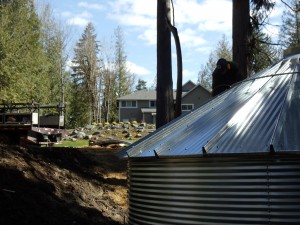 Many King County rural homeowners and farms are finding that rainwater collection as supplementary to their wells or community water systems is helpful in limiting overuse of their water supply.
Many King County rural homeowners and farms are finding that rainwater collection as supplementary to their wells or community water systems is helpful in limiting overuse of their water supply.
If you are in a water district or community water association, there are cost increases when you reach a certain level of use. Those who are on a lower producing well may find that supplementation maybe the answer for lower water volume or even salt water intrusion. Adding a rainwater collection system can lessen the demand on both.
With more space than an urban building lot, larger storage can be the answer to your water needs. Large grain bin, steel tanks can store as much water as you may need. It is common for rural applications to have 10,000 to 50,000 gallons or more of storage. Irrigation, livestock watering, equipment wash down and even whole house use can be achieved with rainwater collection.
Rainwater starts off relatively cleaner than surface water. With simple filtration, non potable applications can be the answer to digging a new or additional wells. With proper filtration and disinfection for potable use, water quality can exceed that of wells or community water without the added chlorine. Large roof areas found on farms can supply enough water for dairies, livestock and domestic use. A study of average rainfall and roof area can guarantee the amount of water you can collect.
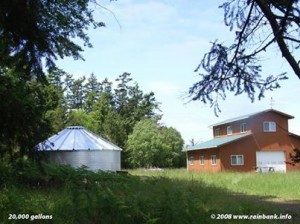 The return on investment of a rainwater harvesting system for a farm can be as little as 3 years, saving thousands per year on water costs.
The return on investment of a rainwater harvesting system for a farm can be as little as 3 years, saving thousands per year on water costs.
For the rural homeowner with large landscaping, water demand can be expensive. A larger cistern as a supplementary source can save money on your monthly bill from the water district. Whether your needs are large or small for water use you can benefit from rainwater collection in a rural application.

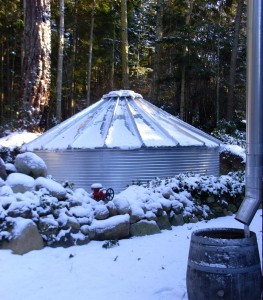 Rainwater collection is becoming increasingly popular, driven by centralized water and sewer systems unable to meet demands, incentive programs offering rebates (much like solar), water quality, availability, and cost increases from our municipal sources.
Rainwater collection is becoming increasingly popular, driven by centralized water and sewer systems unable to meet demands, incentive programs offering rebates (much like solar), water quality, availability, and cost increases from our municipal sources.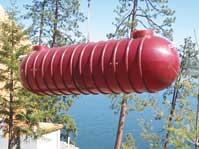 installation.
installation.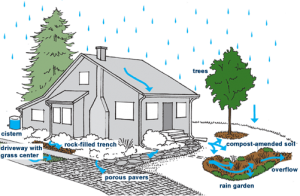 The City of Seattle, through Seattle Public Utilities, has been offering incentives in the way of rebates for rainwater collection since 2010. The
The City of Seattle, through Seattle Public Utilities, has been offering incentives in the way of rebates for rainwater collection since 2010. The